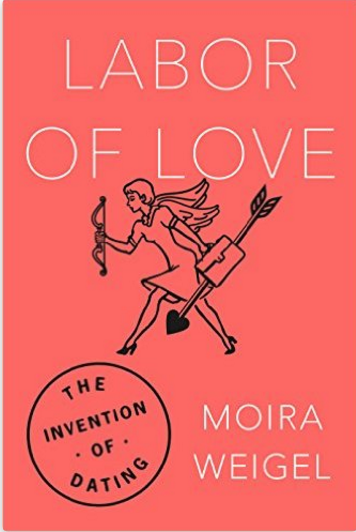
As I mentioned yesterday in my Citrus Coconut Drinks post, my alumnae book club recently discussed Moira Weigel‘s Labor of Love: The Invention of Dating. I’ve been a member of the book club for many years now, and I love the intellectual banter that arises for the wide variety of books we choose. We’ve read classics like J. D. Salinger’s Catcher in the Rye (see my book club theme party pics here) and we’ve read feminist texts such as Sheryl Sandberg’s Lean In.
As graduates of a women’s college — Scripps College in Claremont, California — we enjoy discussing womanhood, gender, and feminism. We talk a lot about our lives. We talk about what’s going on at campus. And we talk about politics. Through the course of a recent catch-up session, we began talking about dating, marriage, and motherhood. Our members span a thirty or forty year age range, with some people in their twenties and others retired. Some got married right out of college and juggle career and babies. Others have not gotten married and wonder about fertility and whether they will quit their jobs — their careers — if they have children.
There had recently been an article about Moira Weigel’s book in The New Yorker that discussed the complexities of dating. It addressed dating not as a self-help book might but in terms of its history and through a feminist lens. We decided to read it and see what we thought.
Through the course of our book club discussion, we discussed: Who pays? Is “going steady” and serial monogamy ruining chances for marriage? Why did some generations go out with a different person every weekend and think of dating more casually while today’s generation is more likely to be in committed relationships? Does this have to do with premarital sex? Slut shaming? Why is the biological clock something only women have to worry about? What happens to men’s sperm as they age? Is marriage warped by consumerism the same as dating is?
Here’s an excerpt from Weigel’s Labor of Love:
At a time of dramatic social and economic change, the ways the biological clock was talked about reinforced old ideas about gender difference. Indeed, it exaggerated them, creating a sense that male and female partners were even more different than traditionalists of the 1950s had imagined. More and more women were breaking into the previously male world of well paid work. Nonetheless, conversations about the biological clock suggested that reproduction was an exclusively female concern.
Labor of Love: The Invention of Dating and our discussion of it was fascinating and eye opening. In explaining dating’s history, Weigel talks about how men and women met and married through social events in a family home. There were no flowers. No emoji eggplants. No candlelit dinners at fancy restaurants. It was courtship. Dating began when people moved outside the home. The gender wage gap meant that women couldn’t afford their own meals out, so they had to rely on dates to pay for them. Women were sometimes accused by police of being prostitutes just because they accepted free meals from men! This then set up a power dynamic in that women had to rely on men if they wanted to go out and men were never sure if women liked them or just wanted a free meal. Not much has changed today. Women typically can pay their own way now, but there’s a lot of confusion about what chivalry is, what a date should consist of, what one should look for in their partner, and how to go from a monogamous relationship to a married relationship while still young enough to have children — if one so desires.
What’s interesting is that about the same time that Weigel’s book came out talking about how dating put women at a disadvantage, Joshua Harris has been in the news for taking a step back from his influential 1997 book, I Kissed Dating Goodbye. Harris, a conservative Evangelical Christian, preached that instead of contemporary dating, singles should practice “courtship.” You might be familiar with that term from the Duggars, of 19 Kids and Counting fame, who are known for their strict rules against even hand-holding. Harris recently told NPR:
But I think one of the things that I’m changing in my own thinking is I just think people – myself included – it’s so easy to latch on to a formula. You know, you do these things and you’ll be great. You’ll be safe and you’ll be protected and you’ll be whatever.
And I just don’t think that’s the way life works. I don’t think that’s the way the life of faith works. And so when we try to overly control our own lives or overly control other people’s lives, I think we end up harming people. And I’m – I think that that’s part of the problem with my book.
It was interesting listening to discussions of both Moira Weigel’s book Labor of Love: The Invention of Dating and Joshua Harris’ book I Kissed Dating Goodbye: A New Attitude Toward Romance and Relationships around the same time. Their perspectives come from such vastly different vantage points, and yet both are critiquing the contemporary dating scene and discussing the idea of courtship. It seems that in the end, when it comes to dating today, men and women need to be upfront about their expectations and desires. Maybe this will scare some people off, but maybe it’s better to know that upfront anyway. Maybe there’s no formula for how relationships work. Maybe each person and each couple has to actually communicate and find out what works best for them.


